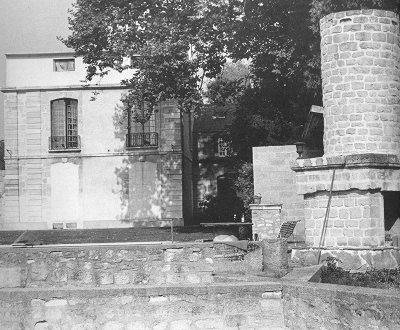

David Bowie - Pinups
(1973) RCA Canada cat# APL1-0291
Runout wax Side A
RS 1003-A-2T (Z) A1 K
Runout wax Side B
RS 1003-B2UT Z A1 K
Transcription:
Ariston RD-11s turntable
Fidelity Research FR-12s tonearm
Nagaoka MP30 MM cartridge
Yamaha phono stage
Creative X-FI sound card for capture (A Side)
M-Audio sound card for A-D conversion (B side)
33rpm vinyl rip @24bit/96khz resolution
Post transcription:
ClickRepair 3 Wavelet mode @39
Manual touchup on missed clicks
Manual touchup on leadin/out areas
Package peak levelled to 96.27%
FLAC conversion by Easy CD-DA extractor
unless otherwise noted:
no eq applied
no noise reduction applied
no compression applied
Personal Restore rating:
8.0/10 due to mastering issues
Notes:
The promo photos of Bowie from July 09 1973 leaving
on a train to go to France to record Pinups are the
same photos used on the 'Hard Meat and Limp Hits'
unofficial release.
The master tape used for this press run had audible
flutter in the tape transfer. There is a high pitched
noise in the background of a couple of tracks but is
generally not a large issue in this release. There
is software that allegedly will correct these problems
but I have no interest in altering the sound to that
degree.
This was a better than average RCA pressing weighing
in at 143 grams, 23 grams more than the nominal weight.
There was a medium gloss and the vinyl has that brittle
feel usual to RCA Canada pressings from 1972-4. A
moderately low click count was on this copy. This
transcription was taken from the 14th play of the A
side and the 17th play of the B side. There were no
major problems with this copy as it was EX+.
There was some secondary click processing necessary
on the lead ins and outs of a couple of tracks
most notably A4 and B3. This was due to the amount
of harmonics overwhelming the original click algorithm
but better to have left these clicks behind for
reprocessing than to have wiped the audio information
clean.
The concert bonus is the audio from the July 1973
'retirement concert' featuring Mike Garson as the opening
act. He received 52 bucks for the performance and had to
sign away any rights to future royalties.
The cover scans were sourced externally but match
the copy presented here.
Even though it is not rare, this album does not
seem to surface that frequently.
Synopsis:
After the Hammersmith Odeon Concert on July 3, 1973 where
Mr Bowie famously announced his 'retirement', there was
some shakeup in the background of Bowie's entourage. A
simmering feud had been developing in the Spiders from
Mars all about a disagreement on the amount of money
earned by the band, and at some point in (what turned
out to be) the Ziggy farewell tour, Mr Bowie decided to
pack it in and fire the band members Mick Woodmansey and
Trevor Bolder. He was not willing to risk going solo
without Mick Ronson at this point. TJ Bolder was only
spared the actual sacking because Jack Bruce (ex-cream)
declined to participate as a backup to Bowie. Despite
the somewhat shoddy treatment of Bolder, according to
Ken Scott he was professional during the Pinups sessions,
as was Ronson.
The apocryphal story of the genesis of Pinups is that Bowie
handed Ronson a stack of old 1960s records and told him to
learn how to play these songs.
Thus Pinups was born not out of necessity but out of choice.
It was an interesting concept, to do a whole album of cover
material with no original songs but it was pulled off in
good order because of the herculean efforts of one Mick
Ronson.
As Scott Richardson, who was a witness to the sessions,
later stated in an interview:
"When we recorded Pin Ups he [Ronson] did everything in
the studio. He tuned everybody's instruments, he worked
on all the arrangements. Really he worked all the time.
I never saw him when he wasn’t. He was whipped from it,
he was working so hard. Looking back on it now and
listening back to it, he was absolutely brilliant.
He was the guy responsible for the whole thing."
One of the reasons I have always liked Pinups was the
fact that Ronson did all the guitar work and thus did
not have to carry an inferior player throughout the
sessions. Although the sound remained similar to the
earlier Bowie albums, Dunbar's drumming did change the
output in subtle ways.
Track listing:
A1 Rosalyn 2:20
A2 Here Comes The Night 3:08
A3 I Wish You Would 2:47
A4 See Emily Play 4:10
A5 Everything's All Right 2:27
A5 I Can't Explain 2:10
B1 Friday On My Mind 2:56
B2 Sorrow 2:53
B3 Don't Bring Me Down 2:06
B4 Shapes Of Things 2:52
B5 Anyway, Anyhow, Anywhere 3:05
B6 Where Have All The Good Times Gone? 2:46
Comments:
I have grown to appreciate this album over
time and now enjoy it more than my older
favourites of the Bowie catalogue.
Hope you enjoy it as much as I do.